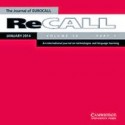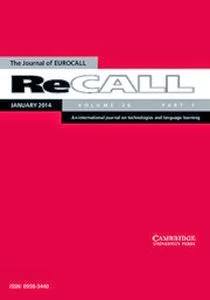Endorsed by the Special Interest Group of the ACL on Web as Corpus
The web has become increasingly popular as a source of linguistic data, not only within the NLP community, but also with lexicographers and linguists. Accordingly, web corpora continue to gain importance, given their size and diversity in terms of genres/text types. However, a number
of issues in web corpus construction still need much research, ranging from questions of corpus design to more-technical aspects of efficient construction of large corpora. Similarly, the systematic evaluation of web corpora, for example in the form of task-based comparisons to traditional
corpora, has only lately shifted into focus.
For a decade now, the ACL SIGWAC, and especially the highly successful Web as Corpus (WAC) workshops, have served as a platform for researchers interested in building and working with web-derived corpora. Past workshops have been co-located with EACL, NAACL, LREC, WWW, and Corpus Linguistics.
This year we are excited to be collocated with Electronic lexicography in the 21st century: linking lexical data in the digital age (eLex 2015). This will be the first time that WAC has co-located with a lexicography conference.
FIRST CALL FOR PAPERS
As in previous years, the 10th Web as Corpus workshop (WAC-10) invites original contributions pertaining to all aspects of web corpora, including data collection, cleaning, duplicate removal, document filtering, linguistic post-processing and annotation, and the use of web corpora in
language technology and linguistics. Because of its co-location with a lexicography conference, WAC-10 particularly encourages submissions related to the use of web corpora in lexicography.
A major challenge in the construction of web corpora is the question of the quality and the evaluation of both the software used in the construction of web corpora as well as the corpora themselves. WAC10 encourages submissions related to these issues.
SUBMISSION FORMAT
All submissions should follow the ACL-IJCNLP 2015 style guidelines and must be in PDF format.
Full paper submissions may consist of up to eight (8) pages of content plus any number of pages consisting of only references. Short papers may consist of up to four (4) pages of content plus any number of pages consisting of only references. Full papers will be distinguished from short papers in the proceedings.
Papers will be presented either orally or as posters at the workshop. There will be no distinction between papers presented orally and those presented as posters in the proceedings.
Reviewing of papers will be double-blind. Therefore, the paper must not include the authors’ names and affiliations. Furthermore, self-references that reveal the author’s identity, e.g., “We previously showed (Smith, 1991) …”, must be avoided. Instead, use citations such as “Smith (1991)
previously showed …”. Papers not conforming to these requirements will be rejected without review.
We strongly recommend the use of the ACL-IJCNLP 2015 LaTeX style files or Microsoft Word Style files. The style files and example documents will be available from the workshop website. We reserve the right to reject submissions that do not conform to these styles including font and page
size restrictions.
ORGANIZING COMMITTEE
Paul Cook, University of New Brunswick (paul.cook@unb.ca)
Roland Schäfer, Freie Universität Berlin (roland.schaefer@fu-berlin.de)
Egon Stemle, EURAC (egon.stemle@eurac.edu)
PROGRAMM COMMITTEE (Confirmed so far)
Andrea Abel, European Academy Bolzano / Bozen
Felix Bildhauer, Freie Universität Berlin
Jesse Egbert, Brigham Young University
Stefan Evert, Friedrich-Alexander-Universität Erlangen-Nürnberg
Simon Krek, Jožef Stefan Institute
Lothar Lemnitzer, Berlin-Brandenburgische Akademie der Wissenschaften
Robert Lew, Adam Mickiewicz University in Poznań
Nikola Ljubešić, University of Zagreb
Carolin Müller-Spitzer, Institut für Deutsche Sprache
Siva Reddy, University of Edinburgh
Steffen Remus, TU Darmstadt
Pavel Rychly, Masaryk University
Serge Sharoff, University of Leeds
Yukio Tono, Tokyo University of Foreign Studies
Andreas Witt, Institut für Deutsche Sprache
Torsten Zesch, University of Duisburg-Essen
IMPORTANT DATES
24 April 2015: Paper submission deadline (23:59 GMT-12)
29 May 2015: Notification
19 June 2015: Camera-ready deadline
10 August 2015: WAC-10 Workshop


